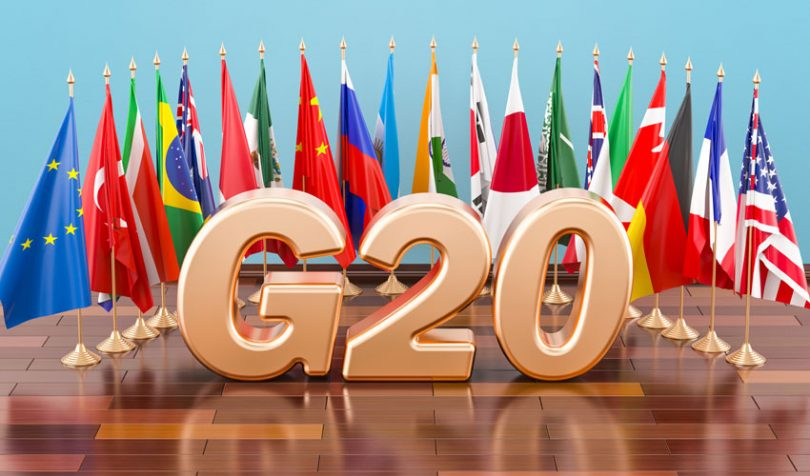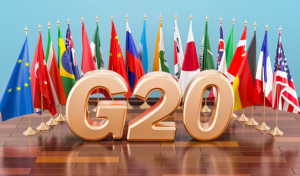Join Our Telegram channel to stay up to date on breaking news coverage
The Financial Stability Board is an international body created by the G20, which has laid out its set of advice and suggestions for crypto regulation worldwide.
In its recent set of statements released around 4 days ago, the Financial Stability Board has stated how most stablecoins are not compliant with FSB’s recommendations for maintaining financial stability.
This report comes after another 2020 report that involved 10 high-level recommendations. It featured the regulation, supervision, and oversight of the so-called global stablecoin situation.
Coming to 2022, the advisory body aims to understand their previously published recommendations and figure out the gaps found in the existing framework, with respect to current policies. Let us know what high-level recommendations FSB has in mind and what it means for the crypto industry’s future.
What Does The FSB’s Report Involve?
The latest report by the Financial Stability Board aims at focusing on the consistent and effective regulation of stablecoins. Additionally, it includes how they can work towards ensuring a stable financial scenario across the world.
FSB also sheds light on the importance of flexibility while coming up with these regulations to be implemented across the world.
The Report consists of three main pillars, covering: recent market developments and the characteristics of existing stablecoins, policy developments, and also looking back at the 2020 high-level recommendations.
Recent Market Developments Taken Into Consideration
In the first section of the report, there is a discussion about the recent pressure on the overall crypto markets, and the existing cryptocurrencies being described as stablecoins and identify gaps and issues for further emphasis. After a meteoric rise, the sudden crypto winter of 2022 calls for revised high-level recommendations.
The effects of the crypto market collapse, as per the report, have still been contained within the crypto ecosystem and haven’t affected the traditional finance ecosystem much. However, there have been newfound vulnerabilities in the stablecoins that can create a larger impact in the future. Some of these vulnerabilities include the limited ability of the users to redeem directly, low quality and lack of transparency of reserve portfolios, flawed business models, and reliance on unsustainably high returns.
On FSB’s analysis of various existing stablecoins, it found that most of them promise to maintain a stable value. Although, most of them are issued by unregistered entities and do not have credible mechanisms.
Policy Developments Around Crypto
The Financial Stability Body has noted that various jurisdictions and standard-setting bodies have made substantial progress. New rules and legislation have been adopted on the basis of high-level recommendations. This will help in addressing the risk of stablecoins or simply bringing them into compliance using the regulations.
However, additional work seems to be done at various intersections, to ensure proper regulation, supervision, and oversight is in place. Some bodies are yet to introduce and adopt stablecoin-specific policies. Taking the dynamic nature of stablecoins into consideration, regulatory bodies around the world are adopting different measures relying on existing sectoral standards and policies for stablecoins.
Tether’s Influence Discussed
In order to stress the vulnerabilities of stablecoins, the FSB report focuses on the collapse of Terra. This was an incident which led to a series of events leading to the crypto winter of 2022.
Chairman of the Financial Stability Board, Klaas Knot, in a letter to G20 Finance Ministers and Central Bank governors earlier in July 2022. The letter by Knot pointed out the vulnerabilities caused by Terra.
UST, as a stablecoin claimed to maintain its peg, assuming that the traders would be willing to leverage arbitrage between UST and Luna by expanding and contracting the demand and supply of the tokens to maintain its value against the USD.
The arbitrage method was- 1 UST was available to be exchanged for $1.00 worth of Luna. This $1.00 of Luna could be exchanged for 1 UST. Traders were able to gain arbitrage profits if the market price of UST rose or fell below its $1.00 peg. This mechanism depended on arbitrage activity and an active trading market.
Review of High-Level Recommendations
The FSB has looked back on its high-level recommendations and has proactively revisited them to accommodate the updates in the crypto ecosystem.
Amongst other recommendations, the main idea was to ensure that authorities have and utilize the necessary tools and resources. This may help them regulate and supervise an arrangement.
Similarly, authorities should apply comprehensive regulatory, supervisory, and oversight requirements which are consistent and effective in nature.
In order to ensure that there is thorough oversight and continuous learning, there have to be domestic and international collaborations. This is to effectively foster effective communication, information sharing, and consultation to ensure comprehensive regulation. These arrangements need to be effective and flexible in themselves for a faster resolution.
Conclusion
The suggestions come at a time when several countries around the world are acknowledging the impact of cryptocurrencies. This may shape the momentum of the industry.
In its high-level recommendations, the FSB repeatedly mentions a more thorough oversight by government bodies ad authorities. Moreover, it also asks crypto-asset service providers to provide a detailed framework and a more transparent approach while disclosing the risks associated with a project.
One of the most important aspects that FSB focuses on is the impact of digital currency markets on traditional markets. It is very likely that this can be a reality in the future.
FSB mentioned in its report that the frameworks and guidelines should be flexible enough to accommodate the ever-evolving cryptocurrency markets. But it certainly can make others question the true essence of cryptocurrencies- which was decentralization. However, it is yet to be seen how crypto enthusiasts and investors will be taking this news.
Read More:
- How to buy Bitcoin
- Environmental Effect of NFTs
- G20 Holds 2020 Meeting, Urges Adoption of FATF Crypto Standards
Join Our Telegram channel to stay up to date on breaking news coverage




